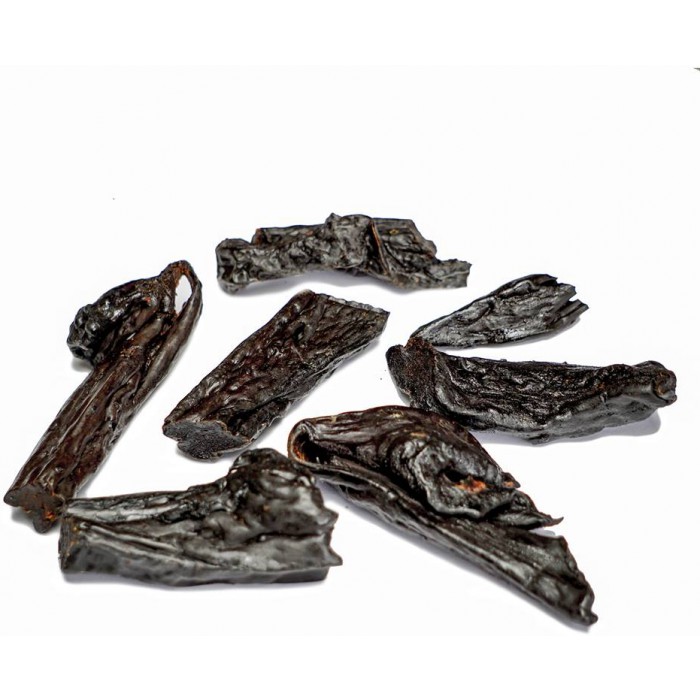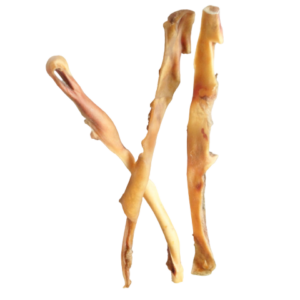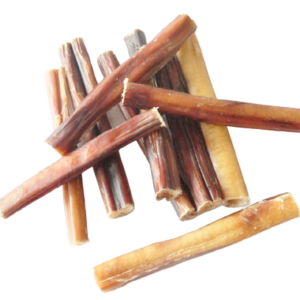Why Liver’s Good?
Liver and other organ meats are high in nutritional value. Liver is an ideal source of protein, vitamin A, good fatty acids and many other minerals and nutrients. Your pooch can benefit from a little liver in his/her diet as a treat or as a main part of the meal a few times a week. It’s Tasty Not Nasty!
Most people make an “ewww” face when you bring up the topic of eating liver. Many of us did not grow up eating this strange but powerfully nutritious food.
Luckily dogs don’t have the same reaction. Liver is an instant hit with most of them!
What’s so great about liver? For starters, it contains 10 to 100 times the nutrients of muscle meat. You know the stuff that’s normally eaten such as hamburger, chicken breast, etc. It has a large amount of vitamin A, several B vitamins, iron, trace minerals, and CoQ10. It’s also a good source of protein.
Grass-fed and pasture-raised animals produce liver with a better nutrient profile but that doesn’t mean you should skip using liver if you can’t find grass-fed products.
Although liver does clean toxins from the body it is not a storage organ for those toxins. If all you can get is conventionally produced liver, it still has great nutritional benefits.
Eating Liver Benefits the Liver In Traditional Chinese Medicine, liver from different animals may have slightly different properties, but many of them are “sweet” in flavour, benefit the Liver, benefit eyes/vision, and tonifies Blood. It may be used in cases of “Blood deficiency,” and “Essence deficiency.”
Even if you don’t have any knowledge of traditional Chinese medicine, it’s easy to understand how eating liver might help a debilitated, fatigued, possibly anaemic animal, when it has such a high nutrient content.
Something to keep in mind if you decide to feed your pets liver: it’s very rich and may cause loose stools if too much is fed.
Start with about half a tablespoon every few days for a medium-sized dog and watch the stools. If they get loose, decrease the frequency of feeding and/or the amount given each time. What About Liver?
People usually ask about the safety of liver.
It is the liver’s job to neutralise toxins in the body from drugs or other chemicals, so obviously the best choice for liver is the grass fed kind, without added antibiotics or hormones. But don’t let that scare you away from liver: it filters toxins but doesn’t store them. Muscle meats are typically higher in unwanted toxins than liver.
Liver is also known to be one of the most concentrated sources of natural vitamin A of any food. Natural Vitamin A works to aid digestion, keeps sex organs/reproductive organs healthy, and is a powerful antioxidant.
Liver is a great source of folic Acid, B vitamins and especially vitamin B12, which help with fatigue, mental ability and nerve health, as well as preventing anaemia.
Liver also contains one of the best, most usable sources for the body, of iron. Iron is necessary for many functions in the body including formation of hemoglobin, brain development and function, regulation of body temperature, muscle activity and catecholamine metabolism, to name just a few. A lack of iron will have a direct effect on the immune system; it diminishes the number of T- cells and the production of antibodies.
Iron is essential for oxygen to the blood cells. The primary function of iron is oxygen transport and cell respiration. For an anemic person, fatigue is one of the most noticeable symptoms. The iron in liver is one of most easily absorbable and usable sources of iron.
Do you have a performance dog? Liver contains an anti-fatigue factor, which is likely to do with improving the oxygen-carrying capacity of the blood cells; increasing endurance and strength in athletes of all species.
Liver contains many nitrogen containing compounds that are building blocks for DNA and RNA. In combination with the B vitamins, this makes it extremely helpful to people with Alzheimers or other types of dementia. Dogs can suffer from dementia as well, so be generous with the liver.
While liver is highly nutritious, its precious nutrients are very much affected by heat, so never cook it or the digestive enzymes and nutrients will be lost.
Get liver into your dog’s regular diet at least once a week if possible for maximum benefit of its high levels of nutrients. But don’t overdo it – if you feed liver as up to 5% of your dog’s diet, you’ll be doing great.
Protein: 59,8 %, Fat: 13,6 %, Ash: 4,7 %, Humidity: 10 %




